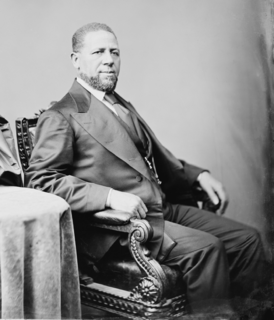A Quote by Gerald F. Lieberman
Traditionally the great men of our country have sprung from poor environments; that being so, it would appear we have long suffered from a severe lack of poverty.
Related Quotes
Government programs aim at getting money for poor people. Our hope was that knowledge would in the long run be more useful, provide more money, and eventually strike at the system-causes of poverty. Government believes that poverty is just a lack of money. We felt, and continue to feel, that poverty is actually a lack of skill, and a lack of the self-esteem that comes with being able to take some part of one's life into one's own hands and work with others towards shared-call them social-goals.
We have suffered unnumbered ills and crimes in the name of the Law of the Land. Our men, women, and children have suffered not only the basic brutality of stoop labor, and the most obvious injustices of the system; they have also suffered the desperation of knowing that the system caters to the greed of callous men and not to our needs. Now we will suffer for the purpose of ending the poverty, the misery, and the injustice, with the hope that our children will not be exploited as we have been. They have imposed hungers on us, and now we hunger for justice.
It is evident that it is the belief of Christian people in this country and in all other enlightened portions of the world that as a nation, we have passed through a severe ordeal - that severe judgments have been poured out upon us on account of the manner in which a poor, oppressed race was treated in this country.
With his continual doctrine [Bishop Hooper] adjoined due and discreet correction, not so much severe to any as to them which for abundance of riches and wealthy state thought they might do what they listed. And doubtless he spared no kind of people, but was indifferent to all men, as well rich as poor, to the great shame of no small number of men nowadays. Whereas many we see so addicted to the pleasing of great and rich men, that in the meantime they have no regard to the meaner sort of poor people, whom Christ hath bought as dearly as the other.
As a reporter, you know the tropes of how stories on poverty work in any country. A reporter will go to an NGO and say, "Tell me about the good work that you're doing and introduce me to the poor people who represent the kind of help you give." It serves to streamline the storytelling, but it gives you a lopsided cosmos in which almost every poor person you read about is involved with a NGO helping him. Our understanding of poverty and how people escape from poverty, in any country, is quite distorted.
Philosophy would long ago have reached a high level if our predecessors and fathers had put this into practice; and we would not waste time on the primary difficulties, which appear now as severe as in the first centuries which noticed them. We would have the experience of assured phenomena, which would serve as principles for a solid reasoning; truth would not be so deeply sunken; nature would have taken off most of her envelopes; one would see the marvels she contains in all her individuals.
Every morning our newspapers could read, 'More than 20,000 people perished yesterday of extreme poverty.' How? The poor die in hospital wards that lack drugs, in villages that lack antimalarial bed nets, in houses that lack safe drinking water. They die namelessly, without public comment. Sadly, sad stories rarely get written.
In today's world, people experience two types of poverty: the poverty caused by lack of food, clothing and shelter, and the poverty caused by lack of love and compassion. Of these two, the second type needs to be considered first because if we have love and compassion in our hearts, then we will wholeheartedly serve those who suffer from lack of food, clothing and shelter.






































